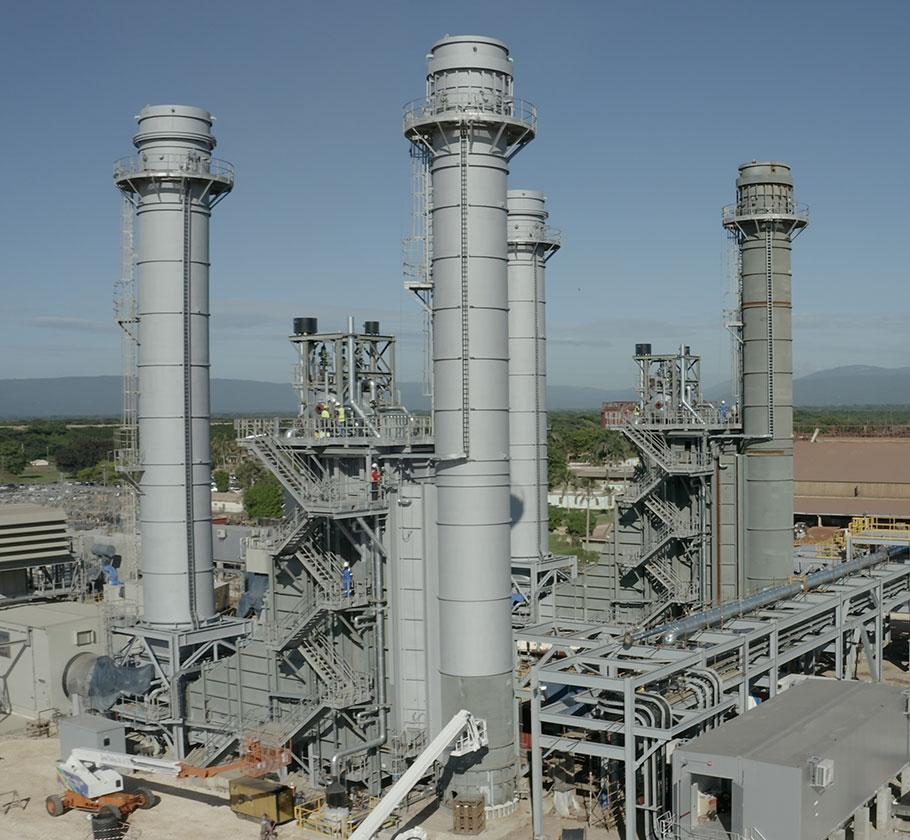Power utility Jamaica Public Service Company, JPS, has started preparatory work on its Hunts Bay plant, which will be converted to run on liquefied natural gas – one of two such projects earmarked in Kingston for execution within five years.
Tender documents for soil testing at the project site indicate that JPS plans to have the Hunts Bay plant up and running by 2024.
The new plant at Hunts Bay will replace 171 megawatts of capacity currently produced using fuel oil. The project is in its early stages, with JPS now in the process of recruiting experts to test the soil in the area where the new plant will be erected.
As it did with the Old Harbour conversion to LNG, the plan is to build a new plant beside the existing facility, and so JPS is trying to determine the stability of the soil to withstand industrial structures at the new spot. In the case of Old Harbour, which was a US$300-million project, the old plant was set for demolition after the switchover. The same is expected for Hunts Bay.
In tender documents issued in March, the power utility said the soil investigations would require onshore soil borings, and that the results of the laboratory tests and analyses on samples provided would guide the civil engineering designs and environmental considerations for the development of the power plant.
The selected soil expert will be required to drill six boreholes to a depth not less than 40 metres, or to bedrock level.
The utility has not responded to requests for comment on the Hunts Bay project, but the soil tender documents offered some, if limited, information.
“The JPS, as a part of its generation expansion, is implementing a programme to develop 171 megawatts of thermal power as a replacement of some of its ageing assets. This plant is to be placed at JPS Hunts Bay location by 2024,” the notice stated. “The generation expansion will include a new intake structure to be located near or beside Hunts Bay B6 Intake. The plant will consist of new gas turbines and a steam turbine.”
JPS is in the process of switching to LNG as an alternative fuel source. Its already achieved two-thirds conversion since 2016, when its first unit at Bogue in Montego Bay was transformed to a dual-cycle facility that can switch between LNG and automotive diesel fuel, or ADO.
The power utility, which is majority owned by Marubeni and Korea East West Power, with Jamaica as a minority partner, is engaged in the generation, transmission and distribution of electricity throughout Jamaica and holds an exclusive licence on power distribution. It owns and operates 28 generating units, but also augments supplies through purchases from seven independent power producers under contract.
The replacement of generating units will allow JPS to produce energy at a more efficient rate, and meet quality standards set by its regulator, the Office of Utilities Regulation.
Jamaica’s electricity generating capacity stands at 985 MW with JPS owning about 644 MW and independent power producers holding the rest. JPS’s assets include 6115 MW of conventional thermal plants which run on gas or diesel; 32.5 MW of hydro and wind facilities; 50 substations, approximately 1,200 kilometres of transmission lines and 20,534 km of distribution lines.
The other Kingston-based plant to be converted under JPS’s five-year programme is located at Rockfort.
